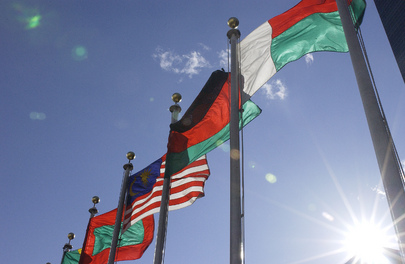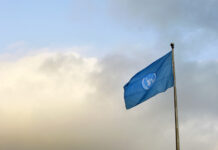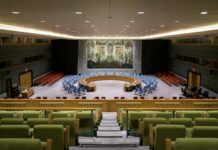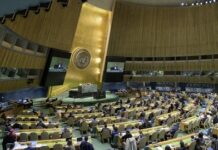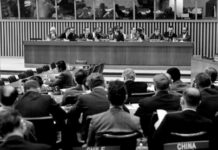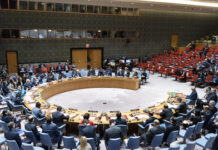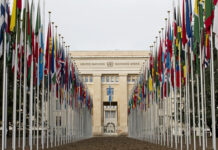UN NEWS: A recent multi-agency report led by the WMO, the World Meteorological Organization, on the State of Climate Services, states that the climate crisis threatens to reverse health gains. Can you explain where the most vulnerable people are?
Dr. María Neira: It’s true that we are very much concerned about the whole very negative impact of climate change on our health can revert the achievements we made until now. Where are the most vulnerable? Well, in sub-Saharan countries, Southeast Asia and the sea countries, the small island countries, because those are the ones that physically may even disappear. But of course, even in rich countries, so-called developed countries, you will have vulnerable populations that will be more at risk. So, essentially, everywhere and everyone is affected by climate change.
UN NEWS: The universal health care for all is a clear WHO goal. How is the triple-pronged approach by three international organizations going to make this happen?
Dr. María Neira: Today, we were looking at this enormous, the magnitude of the problem that climate change represents for human health. And then we are looking at the collaboration between trade policies, transfer of technology, intellectual property and access to drugs, medicine, diagnostics that will require an increase now because we are facing the climate change.
So, we are looking at new green technologies to be transferred to the countries to reduce emissions, accelerating the transition to clean sources of energy, making sure that we harmonize the medical devices that are needed. And definitely, this collaboration by the three organizations will create and is based in a response that is needed, taking into consideration the huge magnitude of the problem that climate change represents for human health.
UN NEWS: The world leaders will meet in Dubai at the end of the month for the climate conference COP 28. What message will you give them and what outcome do you expect from this conference?
Dr. María Neira: Well, we are very optimistic, relatively optimistic, because this year, for the first time ever, we will have a health day at the COP. We have been fighting for many years to make sure that everybody understand that health should be driving all the negotiations.
The negotiators needs to understand that they are not just negotiating with the reduction of the percentage of emissions every year, but they are negotiating as well with how many cases of asthma, how many cases of chronic respiratory diseases, how many cases of lung cancer, how many cases of diseases that are associated with exposure to air pollution or the consequences of climate change, they need to understand that they are negotiating with our health as well. So, this is the first thing we want to put on the table of the negotiators. And of course, we want them to as well understand that there are positive messages if they take the right action, if they tackle the causes of climate change, we can obtain enormous benefits from cleaning the air we breathe, from having cities that are more livable and where we reduce exposure to air pollution and we have more energy efficiency, we have a more active lifestyle to a more sustainable, healthy diets and sustainable food systems are needed if we want to tackle the causes of climate change. And that will provide us enormous benefits for our health as well.
UN NEWS: What are the figures and the goal you had for 2030, which is hardly in six years?
Dr. María Neira: If we look at public health, I would like to reduce completely this mortality caused by air pollution, which represents every year seven million premature deaths. So, if we increase access to clean sources of energy, only by cleaning the air, we could reduce five million deaths every year. If we accelerate access to sustainable food systems, we could reduce as well by five million, and by promoting physical activity and less non-communicable diseases at the city level, more than 1.5 million. So imaging, between now and 2030, that will represent more than 40 million deaths prevented. I think it is a fantastic opportunity and I hope that we will be able to convince everyone.
Source of original article: United Nations (news.un.org). Photo credit: UN. The content of this article does not necessarily reflect the views or opinion of Global Diaspora News (www.globaldiasporanews.com).
To submit your press release: (https://www.globaldiasporanews.com/pr).
To advertise on Global Diaspora News: (www.globaldiasporanews.com/ads).
Sign up to Global Diaspora News newsletter (https://www.globaldiasporanews.com/newsletter/) to start receiving updates and opportunities directly in your email inbox for free.


